Table of Contents
You may be wondering how to get energy without caffeine if you are trying to cut down on your intake of soda and energy drinks. These sugary beverages can give you a short burst of energy and then make you crash later in the day. What you eat, how you move, and how much you sleep regularly can improve your energy and support your attention, focus, and memory.
Caffeine or a sugary snack can be a quick fix to that mid-day energy slump if you are struggling to keep your eyes open halfway through the day. Caffeine stimulates your nervous system to boost your energy and makes you feel more awake.
Relying on caffeine can have adverse effects over time, especially if you drink large amounts. Caffeine can disrupt your sleep, increase your blood pressure, or cause digestive issues. Read on to learn how to get more energy naturally.
1. Avoid Electronics Before Bed
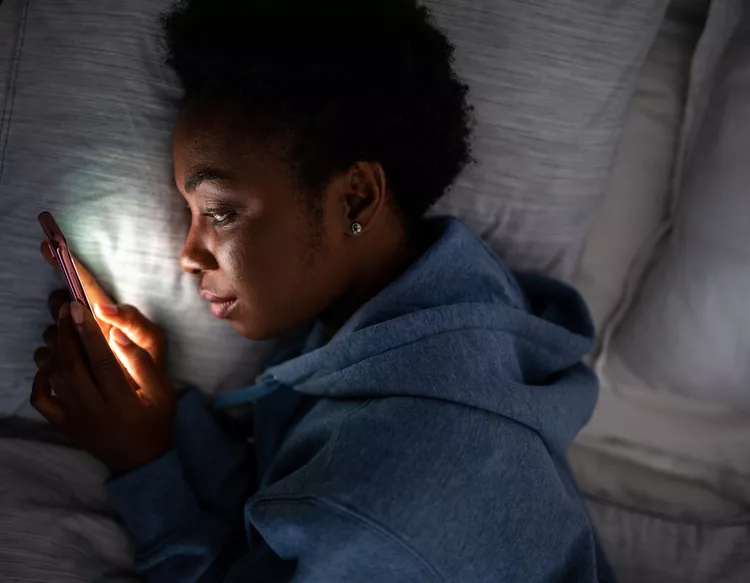
Many people are likely to scroll or read on their phones at night, but this light can impact sleep. Research has shown that using electronics before bedtime disrupts your sleep. As a result, you might feel more tired and less cognitively sharp.
A study published in 2015 found that people who read e-books before falling asleep were less alert in the morning compared to those who read a printed book. Reading e-books or on your phone before bed also made it more difficult for readers to fall asleep.
Try these tips to minimize your electronics use before bedtime:
- Lower the brightness of screens if you must use one before sleeping.
- Opt for a printed book over an e-book if you read to help you unwind.
- Try limiting your electronics use to less than 30 minutes before bedtime.
2. Take a Quick Nap
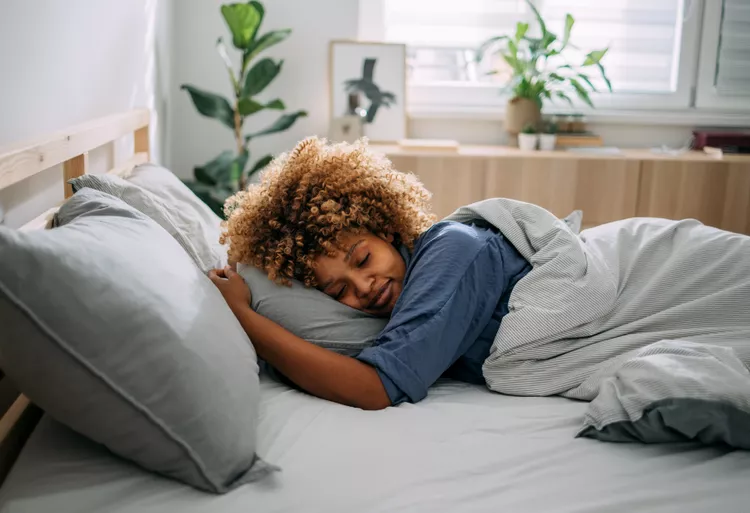
Research has shown that naps of any length help improve cognitive function and how alert you feel. Experts only advise long naps (i.e., 1.5 hours) for people who work long hours. Napping for long periods makes it hard to fall asleep at night.
Here are some tips for napping:
- Do not nap too late in the day. Try napping in the mid-afternoon, around 3 p.m.
- Set an alarm so that you do not sleep longer than 30 minutes.
- Use an eye mask or ear plugs to block out any light or distractions that may keep you awake.
3. Relieve Stress
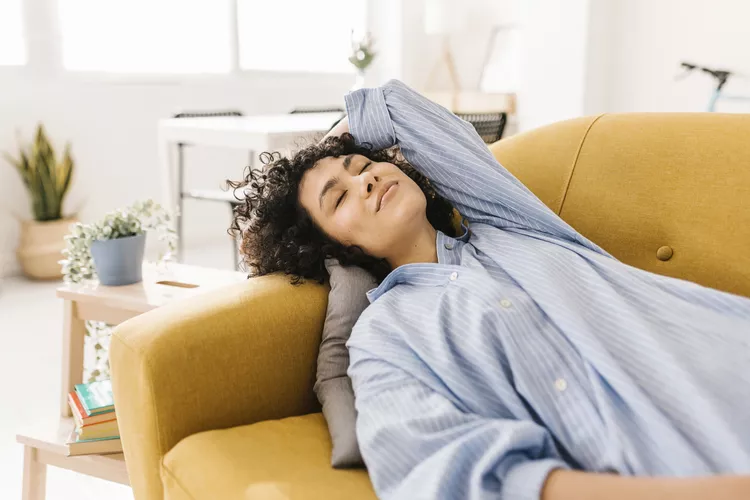
Stress can affect your health in many ways. Chronic (long-term) stress may cause difficulty sleeping and contribute to fatigue. You are more likely to start work fatigued and become more tired during the day if you are stressed.
Relieving stress can ease fatigue and give you more energy. Here are a few ways you can reduce stress:
- Avoid caffeine.
- Exercise regularly.
- Get enough sleep every night.
- Meditate.
- Reach out to friends and family for support.
- Try breathing exercises.
Reach out to a healthcare provider if you have severe stress symptoms for more than two weeks. They can help you figure out how to cope with stress.
4. Engage in Breathing Exercises
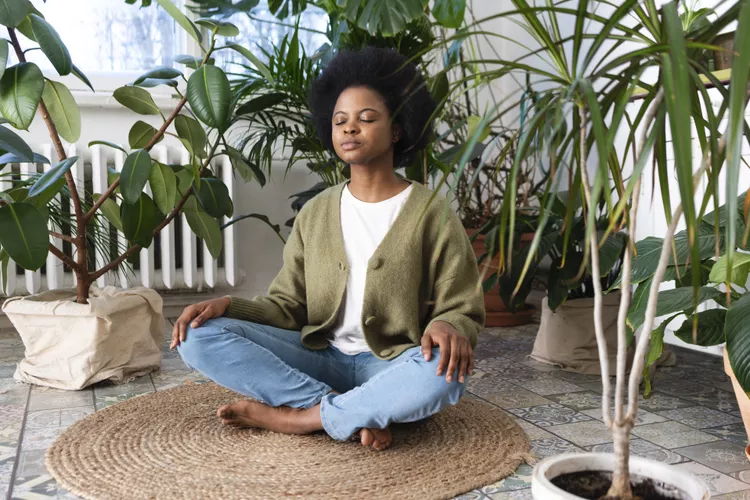
Yoga breathing techniques, or pranayama, can affect your mind and increase energy. Research has found that fast and forceful exhales improve reaction time. Slow and mindful breathing can also alleviate anxiety.
Try a fast breathing technique known as “kapalbhati,” or the breath of fire:
- While sitting in a chair, keep your spine straight and your stomach in. Draw your shoulder blades together and keep your chin straight.
- Take short, rapid breaths through your nose and forcefully contract your diaphragm and belly.
- Continue for no longer than five minutes. This breathing exercise is intense. Do not perform kapalabhati too often to avoid injury.
5. Drink Water

Dehydration can make you tired. Other dehydration symptoms include dizziness, dry mouth and skin, and irritability.
Dehydration has been shown to negatively affect attention and short-term memory. Drinking water, in contrast, has the opposite effect. Aim to drink 91–125 fluid ounces (fl oz) of water per day. Keep in mind that you might need more water than that, depending on your activity level, age, environment, health conditions, and weight.
Here are some ways to increase your water intake:
- Choose water over sugary drinks like energy drinks and soda.
- Consume hydrating foods like celery, lettuce, strawberries, and watermelon.
- Drink water whenever you are thirsty and with meals.
6. Eat Regularly

A balanced diet can give you all of the energy you need throughout the day. Aim to eat regularly, or about every three to four hours. Keep in mind that recommendations are individualized and depend on factors like hunger and your lifestyle. Research has shown that eating frequently helps increase alertness.
Snacks that create lasting energy contain lean protein and fiber-rich carbs. Here are some examples:
- Air-popped popcorn with string cheese
- Apples and nut butter or a handful of unsalted nuts
- Carrots with hummus, guacamole, or yogurt dip
- Fresh berries with low-fat Greek yogurt
Keep in mind that drinks with added sugar, such as energy drinks and soda, can give you short-term energy. After an hour or so, your energy may drop, and you may feel more tired than before.
7. Increase Vitamin D

Vitamin D, otherwise known as the sunshine vitamin, is created in the body when exposed to sunlight. This vitamin is essential for strong bones. Low vitamin D levels can cause fatigue and weakness. Increasing your vitamin D intake helps reduce muscle fatigue and keeps your muscle cells healthy.
You can increase your vitamin D intake by:
- Eating vitamin D-rich foods (e.g., egg yolks, liver, and saltwater fish)
- Getting sunlight exposure
- Taking supplements
Talk to a healthcare provider or pharmacist before starting a supplement if you suspect you have a vitamin D deficiency. The Food and Drug Administration minimally regulates supplements. The effects of supplements vary from person to person and depend on many variables, including type, dosage, frequency of use, and interactions with current medications.
8. Supplement With B12

Vitamin B12 helps form red blood cells and supports the nervous system. Most adults need 2.4 micrograms (mcg) of B12 per day. A B12 deficiency can cause fatigue and weakness.
You can try eating more B12-rich foods to boost energy. Sources include:
- Beef
- Milk
- Oysters
- Sardines
- Yogurt
People who eat a vegetarian or vegan diet might have trouble getting enough B12. Animal foods are the most natural sources of the vitamin. Talk to a healthcare provider if you suspect you may be low on B12. They might recommend a supplement to help meet your intake goal.
9. Move More
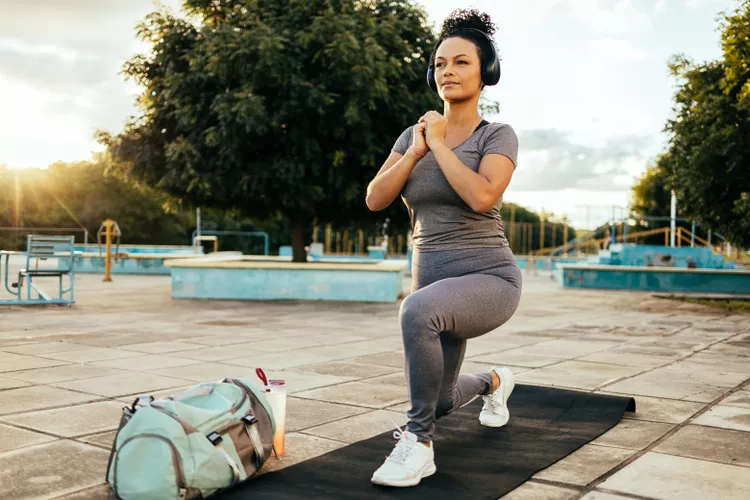
If you have lost your focus staring at a computer, it might be time to take a small break. If you spend most of your day sitting, try getting up and walking around to boost your energy. Research has shown that short periods of moderate-intensity exercise throughout the day can improve your mood and decrease fatigue without negatively affecting work performance.
You can reduce sedentary time by getting up every 30 to 60 minutes. Here are some ways to incorporate more exercise into your day:
- Choose to climb the stairs instead of taking the elevator.
- Ride a bike to school or work.
- Take a brisk walk around your neighborhood or workplace.
10. Limit Alcohol

Alcohol can make you sleepy but also disrupt sleep. Research has shown that alcohol negatively affects the quality of sleep, which can make you feel tired the next day.
Make sure to drink alcohol in moderation, which is one drink per day for females and two drinks per day for males. Drinking alcohol too close to bedtime can disrupt sleep. Drinking water between drinks is important for hydration.
11. Chew Gum
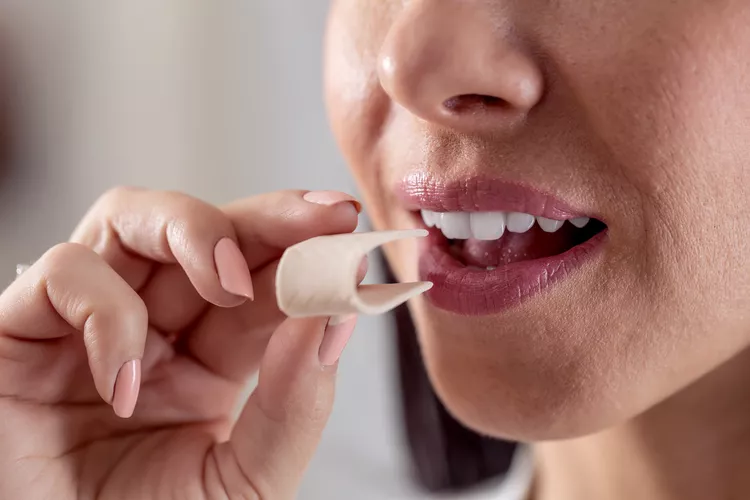
Some evidence suggests that chewing gum increases alertness and helps you focus on the task at hand. In a study published in 2019, researchers found that people who chewed gum while studying a 20-minute physiology lesson were more alert than those who did not.
Chewing gum, especially large amounts of sugar-free gum, can cause gas and bloating. This is due to sugar alcohols and swallowing air. You’ll want to avoid gum chewing if your stomach gets upset or you have grinding issues.
12. Establish a Routine
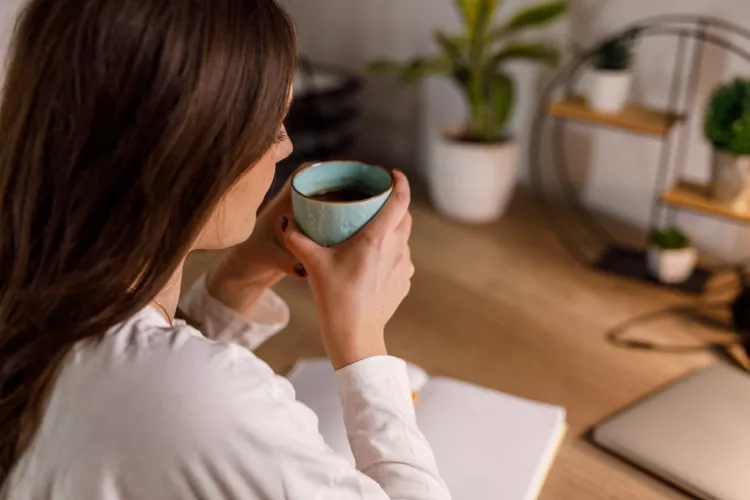
Establishing a routine where you wake up and go to bed around the same time daily can be helpful. Humans are creatures of habit, so a routine can keep your energy up during the day and wind down at bedtime. Routines have been shown to increase energy and support efficiency when completing tasks.
Here are other habits to add to your routine to help maximize your energy:
- Go outside for natural sunlight for about 30 minutes per day.
- Limit caffeine and nicotine intake, especially within six to eight hours of bedtime.
- Make time for physical activity each day. Just remember not to exercise too close to your bedtime.
13. Get a Massage
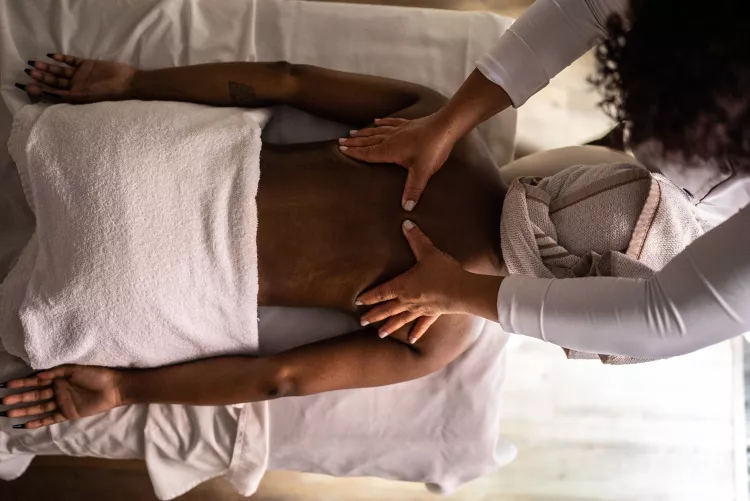
A short massage could aid brain function. A study published in 2018 found that 20 minutes of brain massage significantly decreased mental fatigue. The researchers also noted increases in attention and memory.
Try applying pressure to the “kiss point,” or GV-26 in acupressure:
- Use a fingertip to gently press down on the area between your upper lip and nose, about a third of the way down from the bottom center of your nose.
- Apply pressure to the area, stopping if you feel pain.
- Repeat for about three to 10 minutes, two to three times per day.
14. Try Singing

Some evidence suggests that musical activity helps boost energy levels. A study published in 2018 found that people who actively made music through singing, keyboard playing, or rhythm tapping felt more energetic than others.
The researchers noted that listening to music or a story might relax you, which can decrease your energy. The next time you listen to a song, try singing along to feel more awake.
15. Use Sunlight
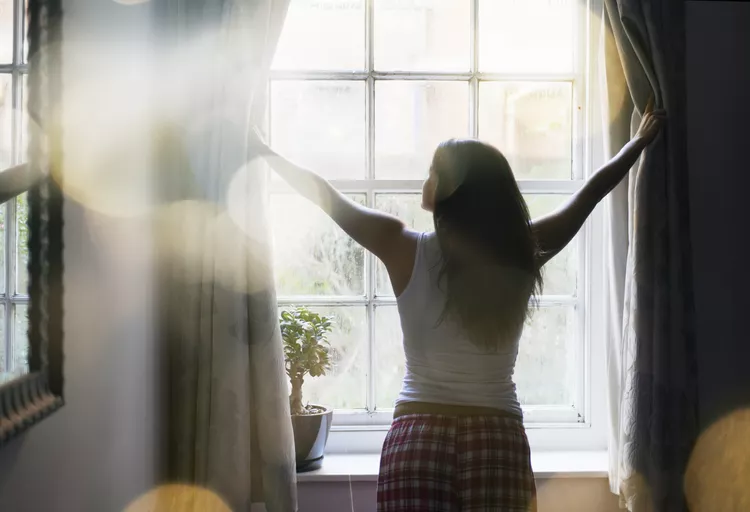
Your body responds to lightness and darkness as signals to be awake and to fall asleep. Your circadian rhythm—the physical, mental, and behavioral changes that follow a 24-hour cycle—takes these light and dark signals so your body knows when to rest and when to be awake.
Here are a few ways you can use sunlight to regulate your circadian rhythm:
- Avoid artificial light before bedtime: This includes light from cell phones, computers, televisions, and other electronics. Artificial light may impair your circadian rhythm.
- Try artificial sunrises: Sensitive sleepers who favor blackout curtains in their bedroom can still benefit from the morning light. Try using a gradual alarm that mimics the rising sun.
- Wake up to sunshine: Leave your blinds or curtains slightly open if waking up feels difficult. Sunlight helps regulate your circadian rhythm. Your biological clock is unable to recognize when it’s time to be awake if you leave the curtains closed and wake up to darkness.
16. Utilize Aromatherapy

Aromatherapy involves applying essential oils, such as those from flowers, herbs, or trees, to your skin or inhaling them. A study published in 2022 found that a blend of clove bud, frankincense, orange, and thyme helped reduce fatigue in women with post-acute COVID-19 (long COVID).
Other essential oils that you might try using include:
- Bergamot
- Cedarwood
- Geranium
- Ginger
- Lemon
- Tea tree
Keep in mind that certain oils should not be applied to the skin. They are hot oils and can burn the skin or cause irritation. Always read the label and use a carrier oil if necessary before applying oils to your skin.
A Quick Review
There are many other ways to get energy without resorting to a cup of coffee if you are trying to cut back on caffeine. However you decide to get more energy, there are plenty of alternatives.
Consuming regular meals that consist of fiber-rich carbohydrates and lean protein can provide you with sustainable energy. Adequate hydration, breathing, exercise, and quality sleep are also important. Start by choosing a few behaviors to modify and be consistent with these changes.

